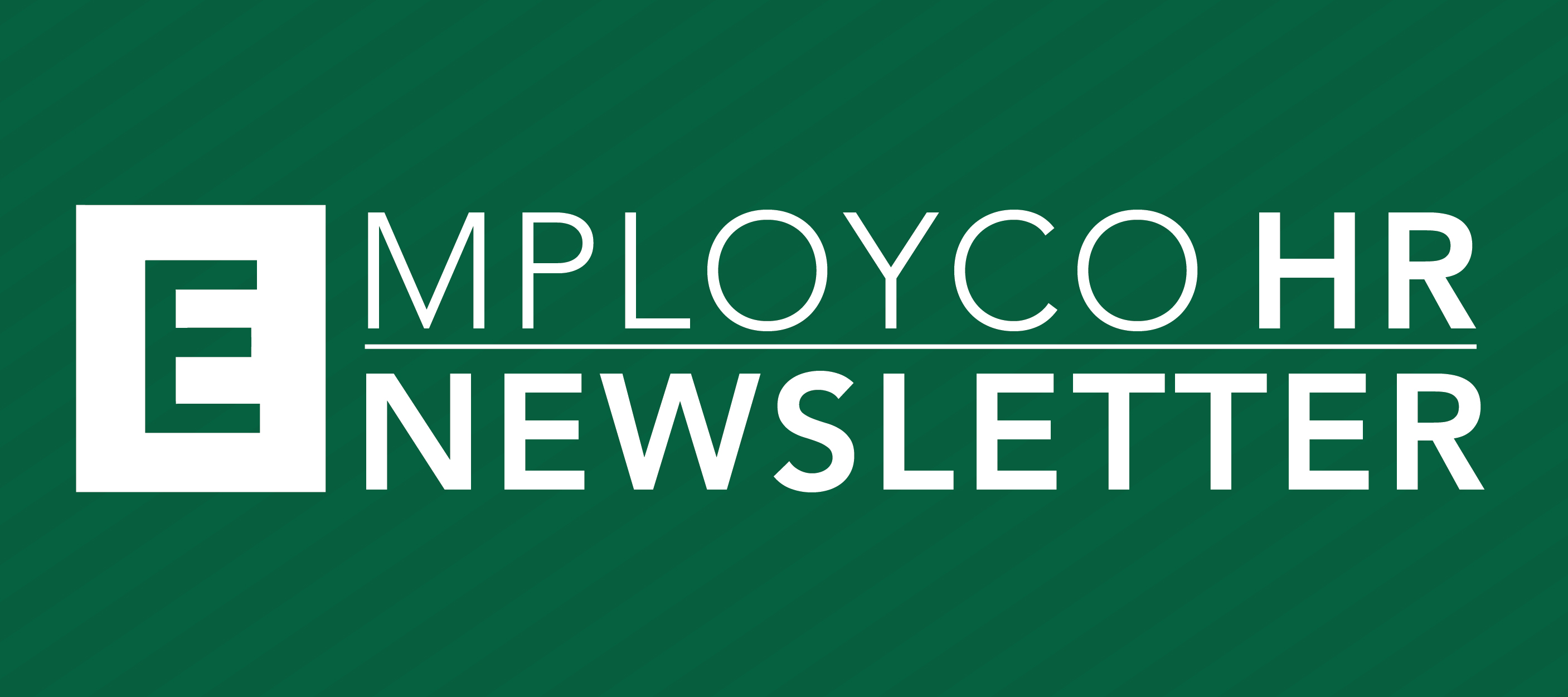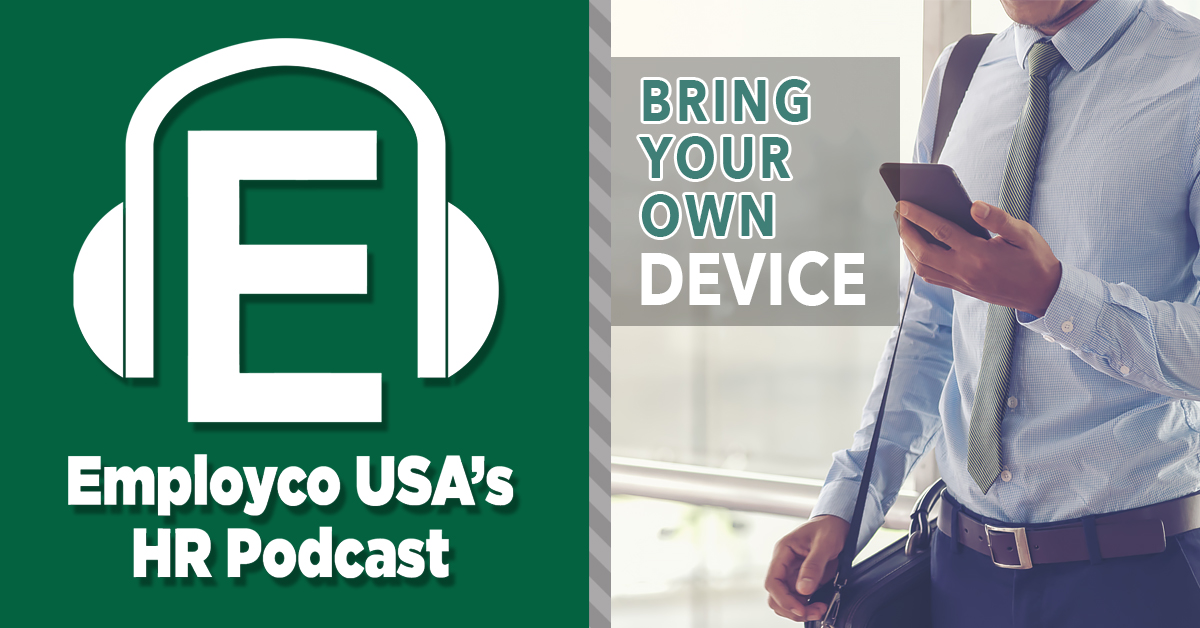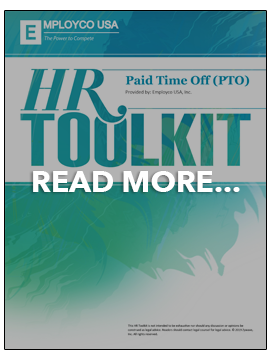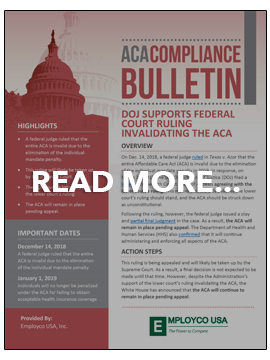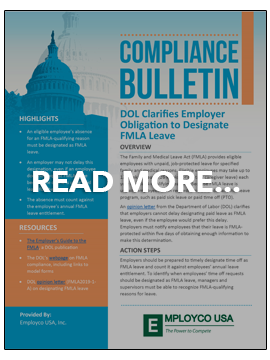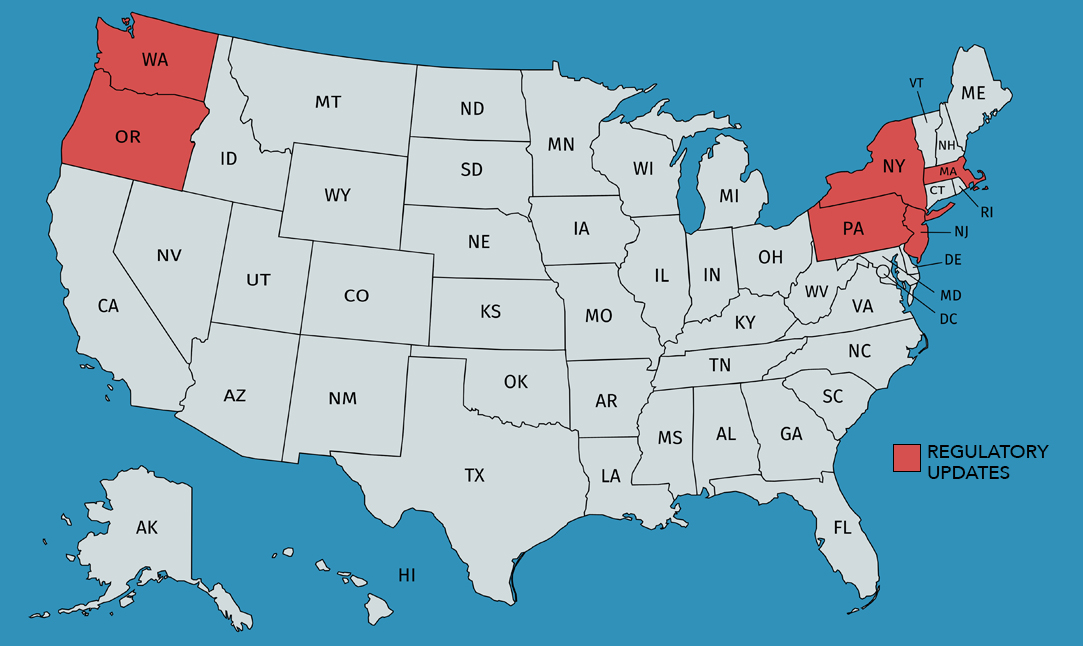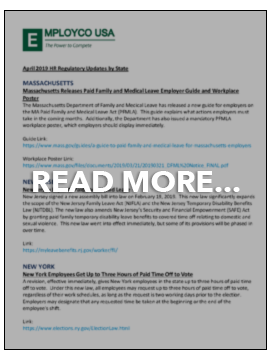| BRING YOUR OWN DEVICE (BYOD) |
|
|

|
|
|
Nearly two-thirds of Americans own a smartphone. With the continuing popularity of personal devices, it should come as little surprise that employees are using their smartphones in conjunction with their job responsibilities. Various studies indicate that somewhere between one-third and one-half of employees use personal devices for work. As employees’ use of personal devices continues to grow, many companies are adapting to this trend, allowing, encouraging and, in some cases, mandating the use of personal devices on the job.
“Bring Your Own Device” (BYOD) refers to the practice of allowing employees to use their own personal devices, usually smartphones, tablets or laptops, at and for work. The growing trend of BYOD is fueled by several factors, one of which is an effort to attract and retain new, younger employees who have a high level of familiarity with technology as well as preferences for which devices they use. Other reasons companies adopt BYOD include the potential for reducing costs, increasing productivity and enabling employees to work flexible hours and from remote locations.
Best Practices:
- Conduct a formal risk assessment
- Establish and communicate a BYOD policy
- Decide which employees can use their own devices
- Consider using technology to control how applications perform on employee devices and allow you to wipe sensitive data off the phone of a former employee
- Require employees to lock their devices with a password
- Prohibit employees from uploading sensitive company data to any third-party cloud storage system, such as Dropbox, Google Drive or Box
As with any widespread change in the workplace, BYOD brings both advantages and challenges to your company and employees. Implementing a BYOD program and policy will help reduce some of the uncertainties and risks associated with this growing technological trend.
Looking for further discussion on this topic? You can click here to listen to Employco’s recent podcast, "Bring Your Own Device (BYOD).”
In this podcast: Rob, Scott, and Jason discuss using a personal device in the workplace; from employer cost savings and increased functionality to mobile device policies, protecting client sensitive information, removing data due to theft or termination, and more.
Let us know if you have any questions, or future podcast topic suggestions.
|
|
|
|
|
|
|
| NEW ATTRACTION AND RETENTION NEWSLETTER |
|
|

|
|
|
We recently released a new attraction and retention newsletter to provide you with trends and tips related to finding and keeping talented employees. This version of the newsletter looks at:
- 5 ways to keep employees from jumping ship
- Retention of your talent with wellness
- An eye on 3 trending retention issues
- Workplace outlook including updates to U.S. employment numbers
Contact us today for help with your recruitment and retention efforts.
|
|
|
|
|
|



|
|
|
|
|
|
|
EVALUATING PAID TIME OFF PLANS
|
|
|

|
|
|
|
Offering employees time off from work can be an easy way to round out your benefits package. When taken advantage of, paid time off (PTO) can bring employees back into the workplace with renewed energy and productivity. Moreover, workers want flexibility in the workplace and want to find a healthy work-life balance. A well-crafted PTO program can show your commitment to employee wellness and help keep your workforce happy. With this in mind, we created a new toolkit on Paid Time Off to give you an overview of the different types of PTO, marketplace trends, best practices and much more. If you’ve thought about PTO but never implemented it, or even if you’ve never considered it before, this toolkit can help inform your decision. PTO may not be right for your organization, but consider reading through these sections before you make up your mind. You may be surprised with how flexible and beneficial PTO policies can be.
If you have any questions regarding PTO policies and procedures, contact us today.
|
|
|
|
|
|
|
| DOJ SUPPORTS FEDERAL COURT RULING INVALIDATING THE ACA |
|
|

|
|
|
On Dec. 14, 2018, a federal judge ruled in Texas v. Azar that the entire Affordable Care Act (ACA) is invalid due to the elimination of the individual mandate penalty in 2019. In response, on March 25, 2019, the U.S. Department of Justice (DOJ) filed a letter with the Fifth Circuit Court of Appeals agreeing with the lower court’s ruling. This means that the DOJ believes the lower court’s ruling should stand, and the ACA should be struck down as unconstitutional.
Following the ruling, however, the federal judge issued a stay and partial final judgment in the case. As a result, the ACA will remain in place pending appeal. The Department of Health and Human Services (HHS) also confirmed that it will continue administering and enforcing all aspects of the ACA.
Action Steps - This ruling is being appealed and will likely be taken up by the Supreme Court. As a result, a final decision is not expected to be made until that time. However, despite the Administration’s support of the lower court’s ruling invalidating the ACA, the White House has announced that the ACA will continue to remain in place pending appeal.
Click here to read the entire ACA Compliance Bulletin.
And, as always - feel free to contact us with any questions.
|
|
|
|
|
|
|
|
| DOL CLARIFIES FMLA EMPLOYER OBLIGATION |
|
|

|
|
|
The Family and Medical Leave Act (FMLA) provides eligible employees with unpaid, job-protected leave for specified family and medical reasons. Eligible employees may take up to 12 weeks of leave (26 weeks for military caregiver leave) each year for FMLA-qualifying reasons. Because FMLA leave is unpaid, employees often request time off under another leave program, such as paid sick leave or paid time off (PTO).
An opinion letter from the Department of Labor (DOL) clarifies that employers cannot delay designating paid leave as FMLA leave, even if the employee would prefer this delay. Employers must notify employees that their leave is FMLA-protected within five days of obtaining enough information to make this determination.
Action Steps - Employers should be prepared to timely designate time off as FMLA leave and count it against employees’ annual leave entitlement. To identify when employees’ time off requests should be designated as FMLA leave, managers and supervisors must be able to recognize FMLA-qualifying reasons for leave.
Click here to read the entire FMLA Compliance Bulletin.
Let us know if we can help.
|
|
|
|
|
|
|
|
| PAYROLL DIRECT DEPOSIT SCAM |
|
|
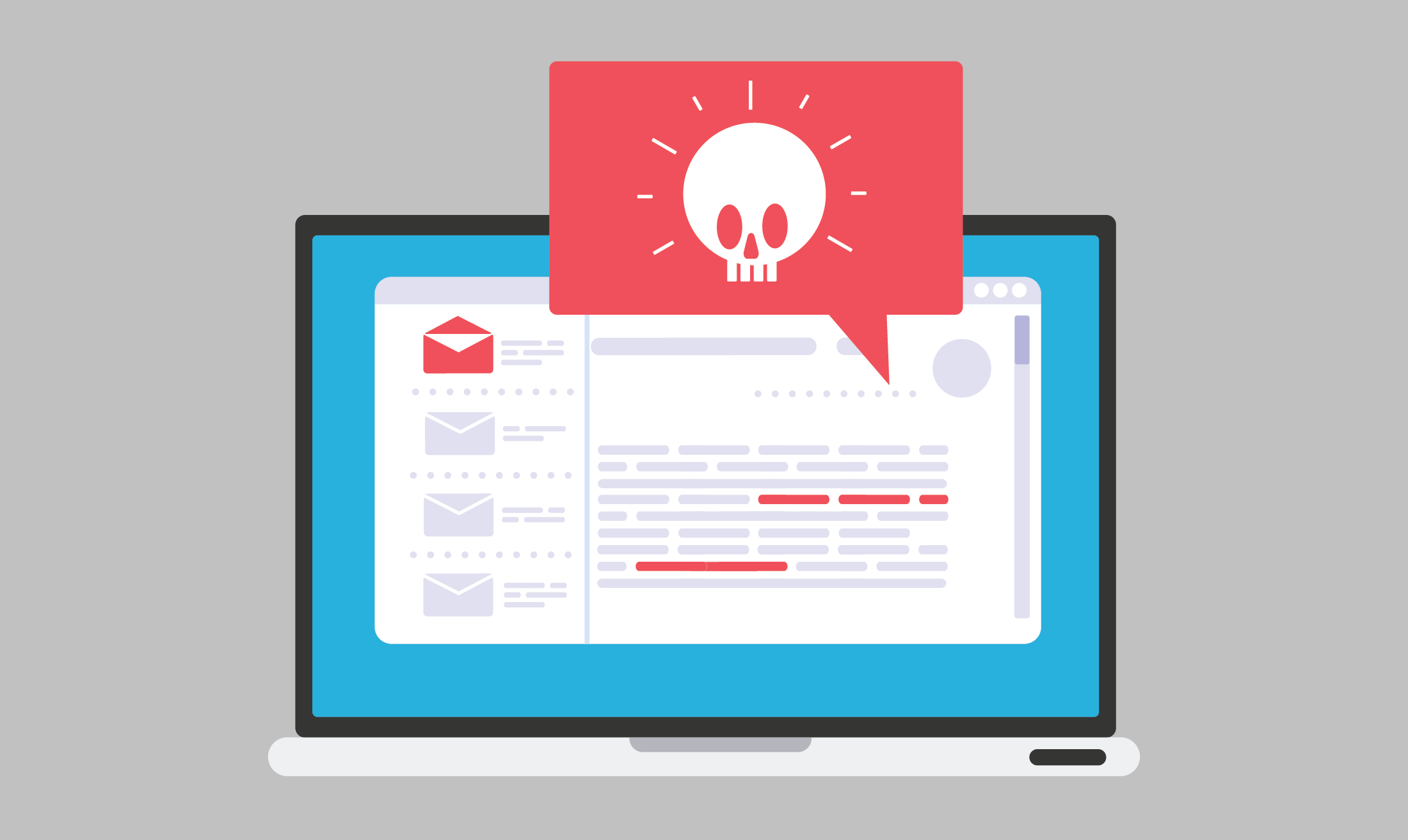
|
|
|
The Internal Revenue Service (IRS) is warning the public about an uptick in a scam that steals a worker’s wages through a fraudulent request to change their direct deposit account. Through a form of email phishing, the sender impersonates an employee by sending an email to the company’s human resources representative, office manager or other administrative professional, requesting a change to his/her payroll direct deposit account. The person provides a new bank account and routing number which is controlled by the thief. Often times, actual employee information, including job titles, can be found on the company’s website or the employee’s social media profile. Click the following link to read the entire IRS Warning. Here is an example of an email that impersonates a company executive Jane Smith (VP of Operations) sent to John Robinson (HR Representative):
Hello John, I changed my bank and I want my paycheck direct deposit details changed. Do you think this change can be effective for the next pay date? Jane Smith
Vice President of Operations
Best Practices to Prevent Direct Deposit Fraud
- Carefully read the email and request
- The sender’s email may not be legitimate
- Look for suspicious content (grammar, spelling, different signature line, etc.)
- The sender may say they are busy and don’t have time to go through the normal process
- Contact the employee through a phone call (use a phone number on file, not one given in the email request) to confirm their request
- Don’t rely on a Social Security number – the thief may already have it
- Don’t engage or respond with scammers
- Notify your email administrator to block the suspicious email address from future attempts
- Encourage employees to keep their address current and to continually review their account
Please let us know if you have any questions.
|
|
|
|
|
|
|
|
|
|
|
|
|
|
|
|
|
